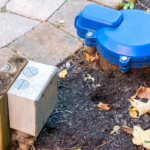
Since 2000, the Uniform Electronic Transactions Act (UETA) has allowed the use of electronic signatures and notarizations. These transactions are valid between two or more parties in states governed by federal laws. The only exceptions are Illinois, New York and Washington. These states have their own electronic signature legislation that is comparable to that of other states.
Electronic notarization is authorized by E-SIGN or UETA in all 50 states. However, only 23 states allow remote online notarization (RON). In these 23 states, “documents executed and notarized remotely and electronically are valid and binding, provided that the notary is physically located in the state of execution for the applicable party.”
Given the situation with COVID-19, New York State has issued Executive Order No. 202. This Order, which is valid through April 18, 2020, states that “any notarial act that is required under New York State law is authorized to be performed utilizing audio-video technology provided that certain conditions are met.”
The Colorado Secretary of State can temporarily issue emergency rules for remote online notarization until April 27, 2020. Delaware plans to issue an executive order allowing the use of audio-video technology for remote online notarization under certain conditions.
Thirteen states have temporary authorization to perform or expand existing RONs. Senator Kevin Kramer, R-N.D., and Mark Warner, D-Va., have introduced legislation to allow “immediate nationwide use of remote online notarization in response to the COVID-19 outbreak.”
House Representative Guy Reschenthaler, R-PA-14, has introduced a bill to the House to create and implement standards for electronic and remote online notarization.
E-recording Updates
Title insurance companies differ in their willingness to issue gap insurance. Some recording offices are open. Others are closed but accepting electronic filings. First American Title Insurance Company and Old Republic Title Company are said to be providing gap coverage in this situation.
First American Title Insurance Company has implemented an internal assessment process to determine whether it can provide title insurance. Chicago Title Insurance Company, Fidelity National Title Insurance Company and Commonwealth Land Title Insurance Company won’t close a transaction unless the recording office in question is open.
If a recording office is closed but still recording documents electronically, it will insure the title “as long as an appropriate title search is performed and applicable tax information is available prior to closing.”
Many recording jurisdictions are accepting scanned images of paper security instruments or of electronically-prepared security instruments for recording purposes. However, whether a recording office will accept an electronic recording (e-recording) is determined by jurisdiction.
A recording office must be “open” and able to e-record a document even if the office is closed to the public. The New York County Clerk’s Office is presently closed and has no ability to record transactions either physically or electronically. The City of Philadelphia Clerk’s Office has designated recordings as essential services and is still processing electronic recordings.
Save Time with Lakeside Title Company
We help Realtors and their clients enjoy smoother, faster real estate transactions and better customer service. We are an attorney-owned and operated title company that treats you more like a partner than a customer, and who offers you tools and resources to make your life easier.
Contact us to partner with us on your next transaction!
Resources:
The American Land Title Association (ALTA) is monitoring recording offices nationwide. Visit https://www.alta.org/business-tools/coronavirus.cfm for updates. To check a status by jurisdiction, consult the table and third-party resources below.




